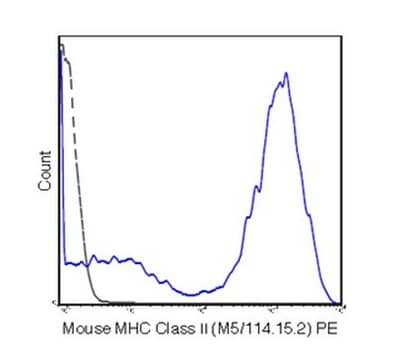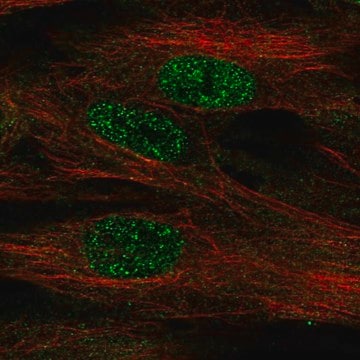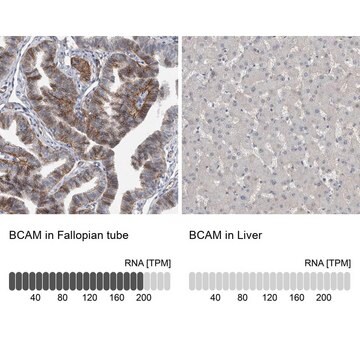MABF2129
Anti-Chlamydial MOMP Antibody, clone B-D3
clone B-D3, from mouse
Synonym(s):
Chlamydia major outer membrane protein
About This Item
Recommended Products
biological source
mouse
antibody form
purified immunoglobulin
antibody product type
primary antibodies
clone
B-D3, monoclonal
species reactivity
Chlamydia, bacteria
packaging
antibody small pack of 25 μg
technique(s)
dot blot: suitable
immunocytochemistry: suitable
immunofluorescence: suitable
immunoprecipitation (IP): suitable
neutralization: suitable
isotype
IgG2bκ
target post-translational modification
unmodified
Related Categories
General description
Specificity
Immunogen
Application
Immunoprecipitation Analysis: A representative lot immunoprecipitated Chlamydial MOMP in Immunoprecipitation applications (Zhang, Y.X., et. al. (1987). J Immunol. 138(2):575-81).
Immunocytochemistry Analysis: A 1:800 dilution from a representative lot detected Chlamydial MOMP in McCoy cells infected with LGV serovar L2 inclusions (Courtesy of Chunfu Yang, Ph.D. and Harlan D. Caldwell, Ph.D., National Institutes of Health, Bethesda, MD USA).
Immunofluorescence Analysis: A representative lot detected Chlamydial MOMP in Immunofluorescence applications (Zhang, Y.X., et. al. (1987). J Immunol. 138(2):575-81).
Dot Blot Analysis: A representative lot detected Chlamydial MOMP in Dot Blot applications (Zhang, Y.X., et. al. (1987). J Immunol. 138(2):575-81).
Inflammation & Immunology
Quality
Isotyping Analysis: The identity of this monoclonal antibody is confirmed by isotyping test to be mouse IgG2b.
Target description
Physical form
Storage and Stability
Other Notes
Disclaimer
Not finding the right product?
Try our Product Selector Tool.
Certificates of Analysis (COA)
Search for Certificates of Analysis (COA) by entering the products Lot/Batch Number. Lot and Batch Numbers can be found on a product’s label following the words ‘Lot’ or ‘Batch’.
Already Own This Product?
Find documentation for the products that you have recently purchased in the Document Library.
Our team of scientists has experience in all areas of research including Life Science, Material Science, Chemical Synthesis, Chromatography, Analytical and many others.
Contact Technical Service







